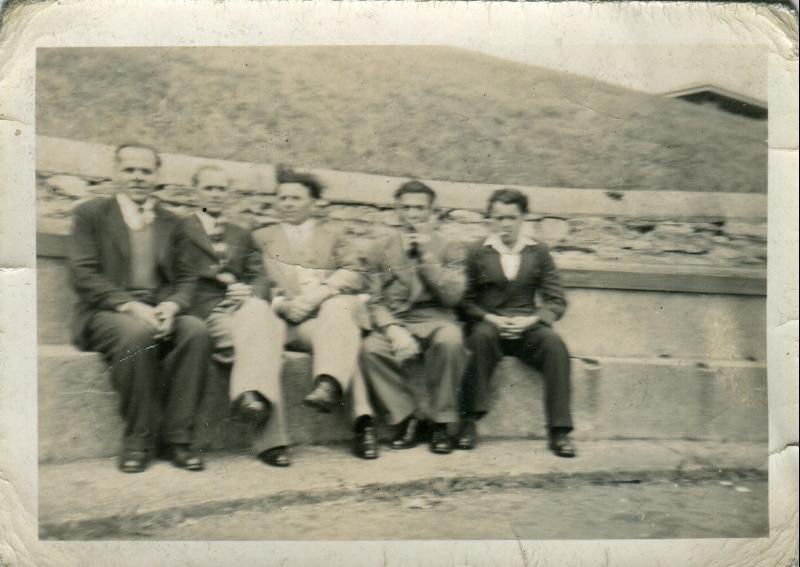Tiverton Community Heritage Coordinator Lizzie Mee outlines some of the European connections emerging in Tiverton’s history…
As we’ve been delving deeper into the archives and history books, we’ve discovered that a big part of Tiverton’s history is that of the European workers who have travelled to Tiverton to work. This is a vast topic – too vast to comprehensively cover in our project – but we’re excited to share a few representative tales and fascinating stories.
We’ve learnt the story of Franc Rosic, who travelled as a teenager from war torn Yugoslavia (now Slovenia) as a member of the British Navy. Franc was picked up in Italy and recruited at 16, before finding a life, a home and a family in Tiverton. We have also discovered the story of his friend Danilo Maglov, who was an official European Voluntary Worker in post-war Britain. Danilo was held in a camp in British-occupied Germany, but by the end of the war, he was brought to Britain and to Tiverton via workers’ camps in Exeter and Corby. We have also uncovered the story of the Meffe family, who came to Tiverton via a Cornish Prisoner of War camp. There’s also several stories about prisoners of war who stayed on to work in the town, including one former POW who married into a Devonian family.
During World War II, a large number of Prisoners of War worked in Devon’s fields, helping to sustain a farming industry which was under great strain due to the demands of wartime. For farmers and individual families, Prisoners of War formed a vital part of the farming workforce. This is clearly apparent both in the memories of people living and working on farms, and also in newspaper articles from the time.
Prisoners of War weren’t released from their work until 1949, when the sudden loss of workforce resulted in a national recruitment programme targeting camps across war torn mainland Europe. These workers were called ‘European Voluntary Workers’ (EVW’s) and were actively recruited by the British Government. Officially, a workforce of around 91,000 were brought to the UK after WWII, but this number might have been even higher. EVWs worked wherever they were told to go, and were moved around the country regularly – seemingly at the will of the state. As we’ve been exploring the personal stories of Tiverton EVWs, it’s struck me that we don’t know, and don’t often talk, about this vast, organised movement of people, without whom many of our towns, industries and farms would have struggled sorely in the wake of WWII. We’re hopeful that our project will begin to tell some of their stories.

